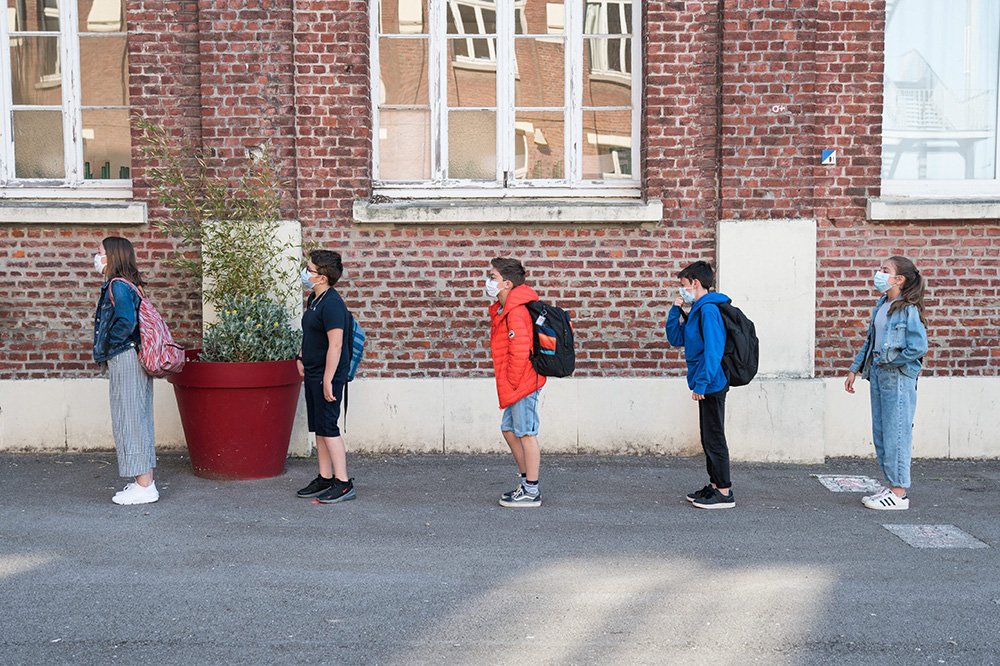The development of several new mRNA and viral vector vaccines in the space of a single year has changed how we understand vaccine hesitancy.
As a gender and social justice researcher in the health humanities, I began tracking COVID-19 vaccine hesitancy in the spring of 2020. My research assistant and I analyzed debates as they unfolded on social media and online forums.
We found that COVID-19 vaccine hesitancy is unpredictable and unstable as new data redraws the vaccine landscape on an almost weekly basis.
Since the novel coronavirus had not been viewed as a threat to children until recently, public health efforts to boost vaccine confidence through the pandemic have generally focused on the adult population.
However, as we await the outcome of clinical trials for younger children, parental hesitancy is emerging as the next challenge area for vaccination programs.
Controversy has swirled around the measles, mumps and rubella vaccine since an unfounded and discredited report first linked it with autism. Given these associations, the reception of the COVID-19 vaccine is important to consider.
Since at least the 1970s, anxious mothers have been the face of resistance to childhood immunizations as primary caregivers accustomed to making medical decisions on behalf of their children.
While a growing number of respondents identifying as male express skepticism — swayed perhaps by social media-spun conspiracy theories — American polls suggest that mothers (especially younger mothers) continue to disclose greater hesitancy than fathers in relation to the COVID-19 vaccine.
Early indications suggested that women were more hesitant than men. However, vaccine uptake is actually higher in women in Canada and the United States. Higher hesitancy in women did not result in higher vaccine rejection. This suggests the possibility that maternal hesitancy will not necessarily translate into rejection of child vaccinations.
Most North American adults were vaccinated as children against a range of communicable diseases from mumps to polio. However, as adults they may worry about how the ingredients of vaccines, compressed immunization schedules or adverse reactions may affect their children — even though they received many of these vaccines themselves many years earlier.
With the COVID-19 vaccines, the time window between parents getting vaccinated and when they take their children to be vaccinated is much narrower than with childhood shots.
Instead of the decades between their own MMR or polio shot and their children receiving the same vaccine, parents and children may get a COVID-19 vaccine within months of each other.
One might expect that parents who sign up for their own two doses will make the same choices for their children. However, a report that has not yet been peer reviewed from the COVID States Project — a 50-state survey of COVID-19 in the U.S. — observed that 26 per cent of parents polled indicated they may choose vaccination for themselves but not for their children.
There are plausible reasons for this. Respondents may believe that children “don’t get COVID” because cases have been less common and less severe in young children than adults. They may have read misinformation about vaccines causing infertility, or they may consider adult immune systems more robust than children’s.
Parents may be willing to subject themselves but not their children to possible adverse effects. They may hesitate if the vaccine designated for their child differs from the kind they received.
Regardless, this prospect of immune parents with unprotected children imparts new urgency to ethical questions about how we balance individual rights with our social responsibilities.
COVID-19 has shifted the terms of debates over childhood immunization that each new outbreak of measles has revived in recent years. As both the virus and the attempts to contain it affect marginalized groups, the concept of “herd immunity” becomes a matter of social justice.
For this reason, the prospect of unevenly distributed immunity, with children over-represented among the unvaccinated, is deeply disquieting. Resolving the child-care crisis that has disproportionately affected women caregivers this past year certainly depends on a successful vaccine program that would enable continued full reopening of schools and daycare facilities.
But perhaps the concerns of parents will melt away when younger children are finally eligible for vaccination. Despite some recurrent gender patterns, there are signs that parental concerns over other vaccines may not coincide with hesitancy regarding COVID-19 vaccines.
The pandemic has taught us that clear communication is essential when vaccines receive emergency use approval for younger children. Parental confidence is precarious and may not withstand the inconsistent messaging that has dogged the rollout of the AstraZeneca vaccine, for example.
Most importantly, parental vaccine hesitancy may arise from positions of both privilege and marginalization. Members of oppressed groups have not always had the option of declining vaccination in the past. There are historical reasons why certain groups might have cause to distrust public health initiatives sponsored by a state that has devalued their children’s lives.
In the current context, unequal access and practical difficulties involved in taking time off work to take children to appointments also complicate this question of hesitancy. This is particularly true for mothers, on whom these responsibilities typically fall.
In this respect, social justice and questions of equity must also be central considerations in addressing the concerns of parents and their children.![]()
![]()
Read more: Health, Coronavirus
















Tyee Commenting Guidelines
Comments that violate guidelines risk being deleted, and violations may result in a temporary or permanent user ban. Maintain the spirit of good conversation to stay in the discussion.
*Please note The Tyee is not a forum for spreading misinformation about COVID-19, denying its existence or minimizing its risk to public health.
Do:
Do not: